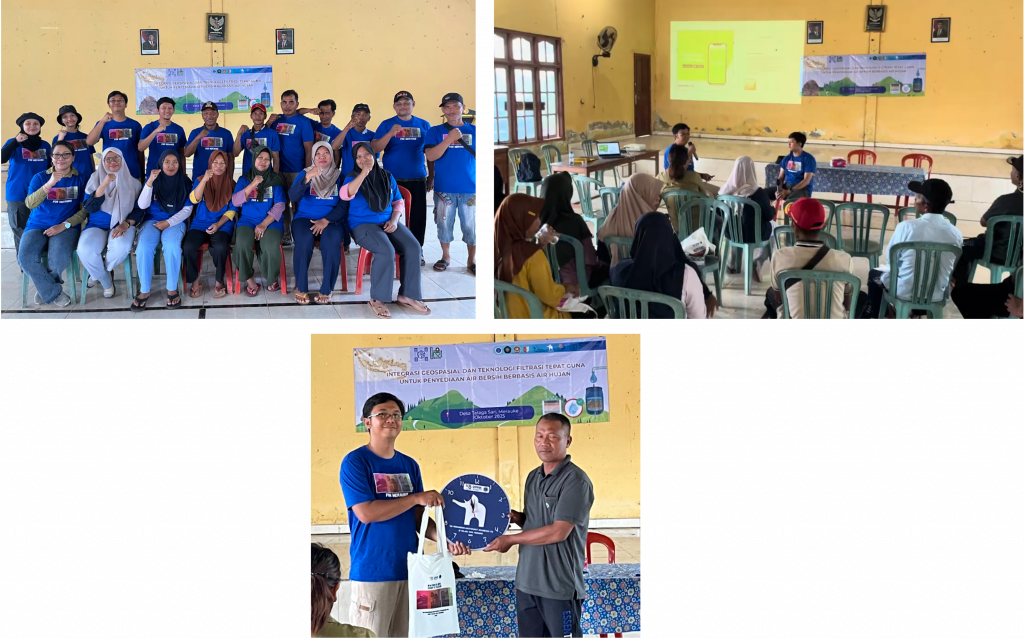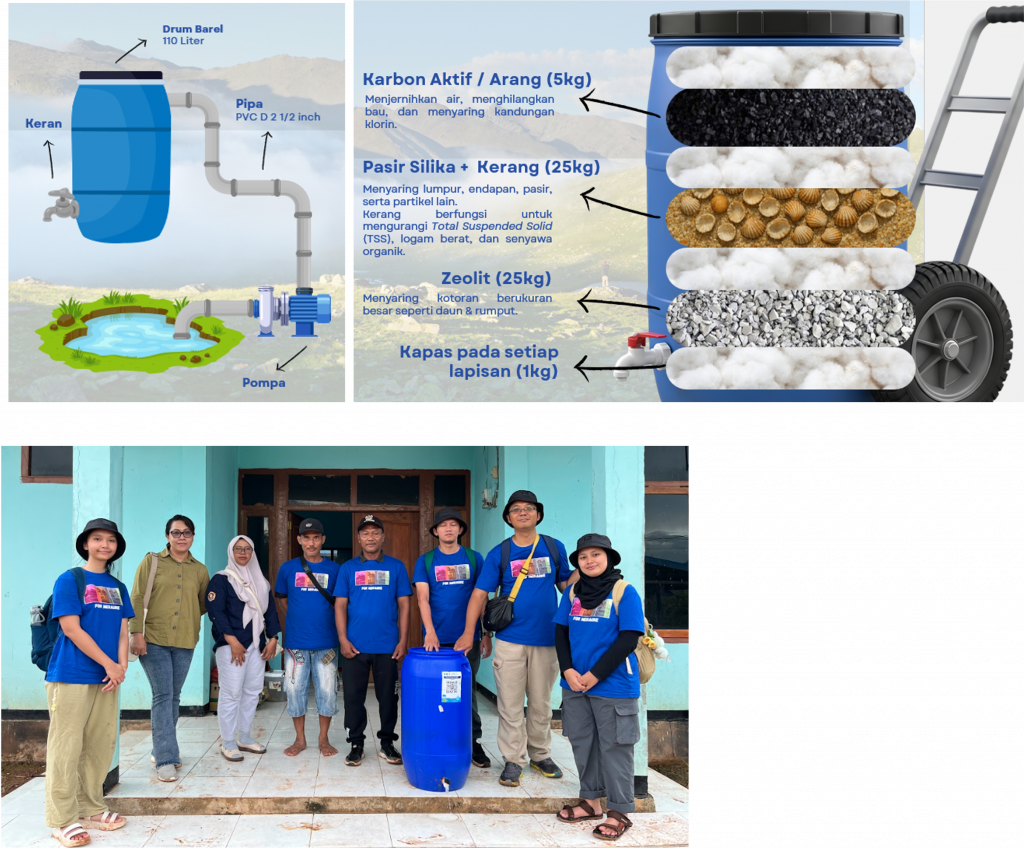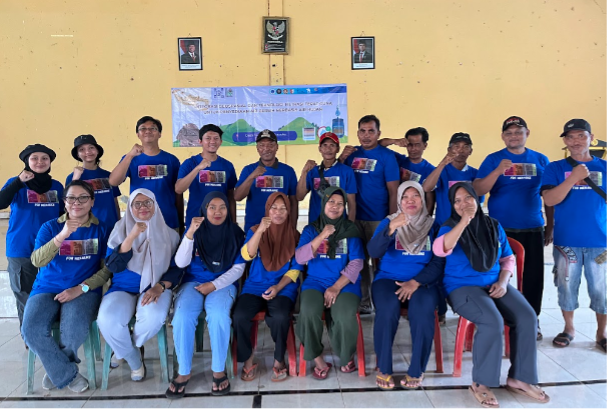In the remote village of Telaga Sari, located in the lowlands of Merauke, South Papua, access to clean water has long been a daily struggle. The village lies only about a meter above sea level, and its residents have relied for years on rainwater stored in small ponds (embung) to meet their household needs. During dry seasons, the water becomes scarce and unsafe, leaving families vulnerable to health and sanitation challenges.
Recognizing this persistent problem, a group of lecturers from Institut Teknologi Bandung (ITB), Brawijaya University (UB), and Musamus University Merauke joined forces to find a sustainable solution. The collaboration—part of ITB’s Desanesha Community Service Program—was led by Miga Magenika Julian, S.T., M.T. from ITB’s Faculty of Earth Sciences and Technology, together with Dr. Prima Roza(Faculty of Art and Design, ITB), Esa Fajar Hidayat, S.Kel., M.Si. (UB), and Sunarni, S.Pi., M.Si. and Nova Suryawati Monika, S.Si., M.Si.(Musamus University).

The team combined geospatial analysis and appropriate technology to design a clean water system that fits the village’s unique environmental conditions. Using spatial data, they mapped the hydrological characteristics and watershed boundaries around Telaga Sari to better understand where and how water could be sustainably collected and treated.
At the heart of the project lies a simple yet powerful innovation: a rainwater filtration system built from readily available materials such as cotton, zeolite, silica sand mixed with crushed seashells, and activated carbon or charcoal. Constructed inside a 110-liter barrel, the system can be assembled, used, and maintained by villagers themselves—making it a true example of community-centered technology.

For the people of Telaga Sari, the initiative offers more than just cleaner water. It brings a renewed sense of hope and resilience. Access to safe water not only improves health but also supports agricultural activities and strengthens local food security in this border region.
This story reflects how universities can play a strategic and compassionate role in addressing real-world challenges. By blending scientific insight with local wisdom, the collaboration between ITB, UB, and Musamus University shows that innovation for sustainability begins with empathy, knowledge sharing, and a commitment to the communities that need it most.
